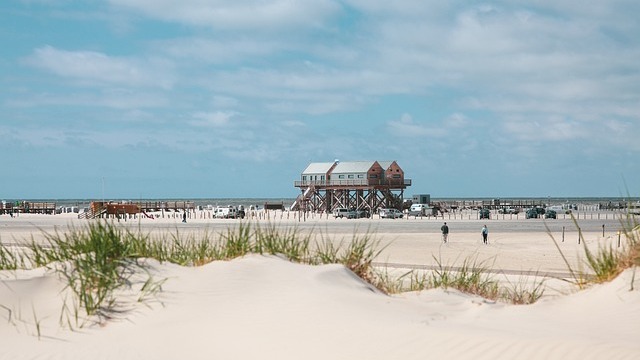
Discovering St. Barts: A Jewel in the Caribbean
Nestled in the glittering waters of the Caribbean, St. Barts stands out not just for its lush landscapes, but as a symbol of luxury and elegance that attracts travelers from around the globe. Known for its stunning beaches, vibrant culture, and exclusive accommodations, St. Barts offers a rare blend of natural beauty and sophisticated lifestyle. Whether you're seeking relaxation, adventure, or culinary delights, this idyllic island has something to offer for everyone.
Luxury Experiences Await
The allure of St. Barts is multifaceted, providing an array of luxurious experiences that make it a premier destination for elite travelers. From five-star resorts and luxury yacht charters to curated travel experiences, the island caters to those with a taste for the finer things in life. Notably, the newly opened Cheval Blanc St. Barth Isle de France, a five-star establishment, epitomizes the essence of luxury with its stunning ocean views, gourmet restaurants, and personalized services.
St. Barts also features exclusive beachfront properties that offer unparalleled privacy and ocean access. Whether lounging on the secluded sands of Gouverneur Beach or experiencing the vibrant atmosphere of Shell Beach, visitors are sure to create lasting memories.
Culinary Highlights: A Gourmet Paradise
With an impressive culinary scene, St. Barts is a paradise for food enthusiasts. The island boasts numerous gourmet restaurants that feature an excellent combination of Caribbean and French cuisines. Don't miss the chance to dine at Nikki Beach, renowned for its stylish ambiance and exquisite dishes.
The island also hosts various gourmet events throughout the year that celebrate its culinary heritage. The upcoming St. Barts Gourmet Festival is poised to attract celebrity chefs and culinary experts, enhancing its reputation as a hotspot for food lovers.
Events and Culture: A Taste of Local Life
St. Barts is not only about luxury and relaxation; its cultural richness adds another layer to the experience. The annual Carnival festival showcases the island's vibrant culture through parades filled with music, dance, and colorful costumes. This event is a great opportunity for visitors to immerse themselves in the local culture and connect with the community.
The charm of St. Barts lies in its ability to provide a unique juxtaposition of exclusivity and warmth, allowing visitors not only to enjoy luxury in solitude but also to engage with the lively community spirit.
Eco-Conscious Travel: Sustainability in Luxury
As the travel industry shifts towards more sustainable practices, St. Barts has made significant strides in eco-conscious tourism. Several resorts are integrating sustainable practices, such as utilizing local resources and minimizing waste, ensuring that the island remains a pristine getaway for future generations.
Visitors seeking a bespoke travel experience can engage with eco-friendly activities, like nature trails and guided tours highlighting the island's unique flora and fauna. Responsible tourism in St. Barts makes your stay not just luxurious but also impactful.
Conclusion: Your Gateway to Paradise Awaits
With its unique blend of luxury, culture, and sustainability, St. Barts continues to captivate travelers seeking an unforgettable escape. Whether you're planning a romantic getaway or a family adventure, the island promises stunning experiences and cherished moments.
Contact us today at www.sitinmyseats.com for more information or to book a free travel consultation! Let us help you plan your dream journey to this Caribbean paradise.
 Add Row
Add Row  Add
Add 




Write A Comment